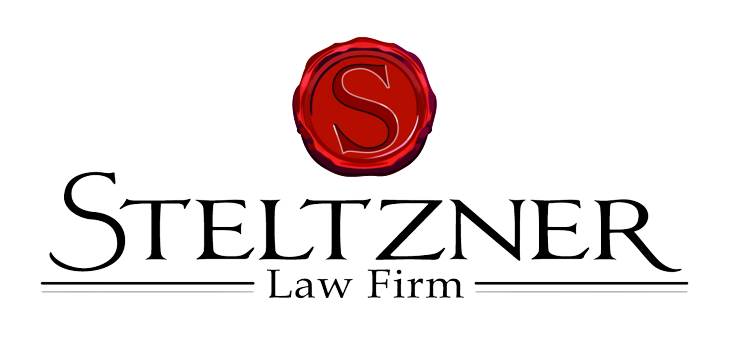A Founder’s Guide to Business Formation and Contracts in the Carolinas

An entrepreneur in Rock Hill, SC, has a brilliant idea. Years of experience in an industry have revealed a clear market gap, and a solid business plan is ready. The excitement is tangible, but so is a creeping sense of apprehension. Suddenly, this visionary is faced with a wall of unfamiliar terms: LLC, S Corp, liability, articles of organization. The dream feels vibrant, but the path forward is clouded by complex legal paperwork and the fear of making a critical mistake before the doors even open. This scenario is common for founders across the Carolinas. A great business concept is the first step, but its long-term success often depends on two foundational legal pillars: selecting the correct business structure and developing contracts that defend your hard work.
New business owners face significant legal challenges. The first is choosing the right legal structure. This decision affects everything from personal liability to how the business is taxed. The second is the creation of protective contracts. Without them, misunderstandings can become costly disputes that put the entire venture at risk. This guide will provide clarity on the essentials of business formation and contract law for entrepreneurs in North and South Carolina. It is designed to help you build your company on a solid legal foundation, giving you the confidence to move forward. The information here, supported by the experience of the Steltzner Law Firm, will illuminate the correct path for your new enterprise.
Table of Contents

Business Formation in the Carolinas – Entity Choice & Compliance
What Are My Business Structure Options in North and South Carolina?
Understanding the available business entities is the first step toward making an informed choice. Each structure offers different levels of protection, tax implications, and administrative requirements. The choice you make will define the legal and financial framework of your company.
Sole Proprietorship
A sole proprietorship is the most straightforward business structure. In this model, the business and the owner are considered a single legal entity. There is no legal separation between the owner’s personal assets and the business’s debts. This simplicity is its main attraction, especially for individuals starting out.
This structure is frequently chosen by freelancers, consultants, and single-person service businesses. The setup is minimal, allowing for a quick start. For business owners in the Carolinas, no formal state filing is required to establish a sole proprietorship. An important consideration is that if the business operates under a name different from the owner’s legal name, a “Doing Business As” (DBA) name must be registered with the local county office. This informs the public who is behind the business.
Partnership
A partnership is formed when two or more individuals co-own a business. Like a sole proprietorship, a general partnership offers little separation between personal and business liabilities. Each partner can be held responsible for the full amount of the business’s debts, regardless of who incurred them.
This entity type is well-suited for collaborative ventures, such as professional services where multiple experts team up. Think of law firms, architectural groups, or medical practices. A critical element for any partnership in North or South Carolina is a well-drafted partnership agreement. This document is the internal rulebook for the business. It should clearly define each partner’s roles, responsibilities, contributions, and how profits and losses will be distributed. Without this agreement, disputes can easily arise and threaten the business’s stability.
Limited Liability Company (LLC)
The Limited Liability Company (LLC) is a popular hybrid structure that combines features of both corporations and partnerships. Its primary benefit is providing the personal liability protection of a corporation while maintaining the operational simplicity and tax flexibility of a partnership. This means an owner’s personal assets, like a house or car, are generally protected from business debts and lawsuits.
The LLC is a versatile choice, making it ideal for most small to medium-sized businesses, startups, and companies that hold assets like real estate. For entrepreneurs in the Carolinas, forming an LLC requires filing “Articles of Organization” with either the North Carolina or South Carolina Secretary of State. This official act creates the business as a separate legal entity. The Steltzner Law Firm has guided many Rock Hill, SC, business owners through this important process.
Corporation (S Corp vs. C Corp)
A corporation is the most formal business structure, creating a completely separate legal entity owned by shareholders. It is managed by a board of directors and run by officers. This separation provides the strongest shield against personal liability for its owners.
Corporations are best for businesses that intend to seek funding from venture capitalists, issue stock to employees, or eventually go public. The Carolina states recognize two main types: the S Corp, which allows profits to be passed directly to owners without being taxed at the corporate level, and the C Corp, which is taxed separately from its owners. Setting up a corporation demands rigorous compliance, including filing annual reports, holding formal board meetings, and keeping detailed corporate records.
How Do I Choose the Right Entity for My Carolina Business?
Selecting the appropriate business entity is a decision that should align with your company’s goals and risk tolerance. Here is a simple guide to help clarify the choice for your Rock Hill, SC, venture.
- For maximum liability protection: An LLC or a Corporation is the clear choice. These structures create a legal wall between your business obligations and your personal assets.
- For the simplest setup: A Sole Proprietorship is the easiest and fastest to start, requiring minimal paperwork.
- If you have partners: A Partnership or a Multi-Member LLC provides a framework for co-ownership. An LLC often offers better liability protection for all members.
- If you plan to seek investors: A Corporation is the standard. Its stock structure is designed for outside investment, with the C Corp being the preferred entity for venture capitalists.
- For tax flexibility: An LLC or an S Corp offers pass-through taxation, which can prevent the double taxation that sometimes occurs with C Corps.

Business Contracts: Common Mistakes & Legal Protection
What Are the Most Common Contract Mistakes New Businesses Make?
Once your business is formed, contracts become the lifeblood of your operations. They define your relationships with clients, vendors, and partners. Avoiding common mistakes is essential for protecting your revenue and reputation.
- Relying on Handshake Deals: Verbal agreements are a significant source of business disputes. While a conversation may feel sufficient at the moment, memories fade and interpretations differ. A written contract provides a clear, enforceable record of the agreement, which is vital for any business.
- Using Vague Language: Ambiguity in a contract is an invitation for conflict. Terms must be specific. Clearly define the “who, what, where, when, and how much” of the agreement. For instance, stating that “services will be completed soon” is unclear. A better clause would read, “services will be completed by October 31, 2025.”
- Forgetting Key Clauses: A good contract anticipates potential problems. What happens if a client doesn’t pay on time? How can either party terminate the agreement? Which state’s laws will govern the contract, North Carolina or South Carolina? These clauses provide a roadmap for navigating disagreements.
- Not Getting it in Writing Before Work Begins: Excitement to start a new project can cause business owners to begin work before a contract is signed. This is a risky move. Always have a signed agreement in place before providing services or exchanging payment. The contract protects both parties from the very beginning.
- Downloading a Generic Template from the Internet: A free, generic template found online is not a substitute for a proper legal document. It is not designed for your specific business needs and may not comply with the laws of the Carolinas. This one-size-fits-all approach often leaves businesses exposed. Getting guidance from a qualified firm like the Steltzner Law Firm can prevent these issues.
How Can I Legally Protect My Business With Stronger Contracts?
Creating stronger contracts is a proactive measure that secures your business’s future. With over 21 years of experience, our team understands what makes an agreement effective.
Step 1: Identify Your Non-Negotiables:
Before drafting any agreement, determine the most critical elements for your business. This could be your payment terms, deadlines, or the ownership of intellectual property created during the project. Knowing your priorities is the first step.
Step 2: Include These Essential Clauses:
- Scope of Work: Provide a detailed description of the services or products to be delivered. This prevents “scope creep,” where a project grows beyond its original boundaries.
- Payment Terms: Specify the exact amount, payment schedule, due dates, and any fees for late payments.
- Term and Termination: Clearly state how long the contract will last and the specific conditions under which it can be ended by either party.
- Confidentiality: If sensitive business information will be shared, a confidentiality clause is necessary to protect it.
- Dispute Resolution: Outline the process for handling disagreements. This may involve mediation or specify that legal action must take place in a certain location, such as Rock Hill, NC.
Step 3: When to Call a Lawyer:
While you may not need a lawyer for every minor agreement, professional legal advice is critical for complex and high-stakes situations. Always seek guidance for:
- Partnership or Shareholder Agreements
- Client contracts involving significant sums of money
- Commercial leases, as these involve long-term commitments and can greatly affect your ability in protecting your commercial property interests.
- Hiring employees or key independent contractors.
Conclusion
Choosing the right business entity and using clear, well-drafted contracts are foundational steps to building a successful and resilient business in the Carolinas. These actions are not just about compliance; they are about proactively protecting your vision, your investment, and your future. A solid legal framework allows you to focus on what you do best—growing your business.
Navigating the legal landscape can be complex, whether you are a new startup or an expanding enterprise. The challenges are real, but the solutions are attainable with the right support. If you need professional guidance forming your business entity or drafting contracts that defend your interests in North or South Carolina, consider the value of experienced counsel. For dedicated assistance from a local team that understands the community, you can find more information about the Steltzner Law Firm. We are committed to helping local entrepreneurs succeed and offer expertise in ensuring smooth real estate closings and helping you secure clear title for your business properties. Schedule a consultation with our team today to build your business with confidence.
